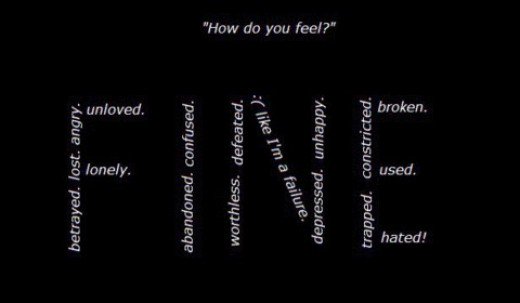The social media has become an important issue in the last decade. With the arrival of Facebook and Vkontakte in Russia we started to spend more and more time online. My previous blogposts are roughly estimating these amount of time to 7 hours a day, and who can say that during these 7 hours we don’t publish any too personal information? To the last moment I thought that I use digital technologies carefully and have never did that.
What’s the problem?
Yesterday I watched a TED Talk from Jennifer Golbeck, the director of the Human-Computer Interaction Lab at the University of Maryland. She was talking about the recent research, where they found that with special methodology you can find any information about any person. As an example she shows how by the likes of a page for curly fries they can understand whether a man is smart or not. How is that happen?
A smart guy started this page <…>. [His] friends saw it, and by homophily, we know that he probably had smart friends,<…> and some of them liked it, and they had smart friends, <…> it propagated through the network to a host of smart people, so that by the end, the action of liking the curly fries pageis indicative of high intelligence. (Golbeck, 3:32)


![]()
So, with such kind of algorithms, modern companies can find any information they want about their customers and use it to make money (often with no benefit to the owner of information). That what makes social media a big issue for its users. Among the solutions, Golbeck offers to create a system, which would inform users about potential lost of personal data, and to be more careful while using social media.
Is this a solution?
Of course, there is a problem of protecting the private information in the internet. Many websites use it without our permission and then show us a contextual advertising. However, I can’t totally agree with Golbeck on the way she suggests to avoid potential threats of social media. Her proposal has one disadvantage: if we stop or significantly reduce the amount of likes and shares in social networks, it, actually, won’t totally help in protection of personal data. Companies will still be able to find all information they need about their customers. The only thing that can stop them – totally abandonment of digital media, which is not possible for users.
Nevertheless, the significant reduction of using social network can negatively affect users themselves. With the abandonment of digital media people will distance themselves from the society, in which using Facebook 24/7 is a normal thing. Moreover, these people, who decided to limit the usage of social media, won’t start to have more real conversations, because all their friends will still be using internet and phones. That will cause a growth of loneliness and lostness feelings, which might lead to the depression.

Another argument is that social media, as Simon Sinek says in his Interview, has become a new addiction that brings a dopamine, the “happiness hormone”, to the people. (Sinek) That is why, if you refuse to use social network, you will feel very bad and unhappy.
You can say that all these things won’t happen if everyone at the same moment will decide to reduce the usage of Facebook and other social media. However, that is also impossible: everyone is thinking for himself and do not believe that others will do the same thing.
That is very similar with one of the famous problems in Game Theory: the choice of the type of transport in order to reduce the traffic jams. Each person don’t want to travel by bus instead of the car, because he understands that only his shifting from car to the bus won’t reduce the traffic jams and he prefers to stand in the jam in a more comfortable type of the transport. Such logic is applicable for others, so none is shifting to the bus. However if everyone did it at the same time, the amount of traffic jams would decrease. (System Sciences at SIS)
The conclusion
There is no need to totally refuse from social network. Of course you should be more careful and try not to reveal your private information, but at the same time overdoing can be very harmful. So you need to understand where the line between keeping private data safe and abandonment of social network. If you do understand it, none will hurt you and you will still be a full member of digitalized society.
Works cited: 1. Golbeck, Jennifer. "Why social media likes say more than you might think", TED Talk, https://www.ted.com/talks/jennifer_golbeck_the_curly_fry_conundrum_why_social_media_likes_say_more_than_you_might_think/transcript?referrer=playlist-our_digital_lives 2. Sinek, Simon. "Interview", https://www.ochen.com/transcript-of-simon-sineks-millennials-in-the-workplace-interview 3.System Siences at SIS, "Nash Equilibrium", http://systems-sciences.uni-graz.at/etextbook/gametheory/nash.html


Interesting. Going forward, I’d like you to engage with Golbeck’s argument more deeply. Your use of the curly fry example is great, but right now, I don’t understand what she wants us to do. You need to present, and explain, quotes from her talk to ensure that both you and your audience understand her claims.
You write that with “such kind of algorithms, modern companies can find any information they want about their customers and use it to make money (often with no benefit to the owner of information). “–> I don’t understand why this is a problem. Does Golbeck think it is? Why? What’s her proposed solution? What’s your proposed solution? That can be your main point. When you figure it out, revise so that the rest of the essay supports that main point.
Good job using ellipses (…), but in English we never use . So … = good / = wrong
LikeLike